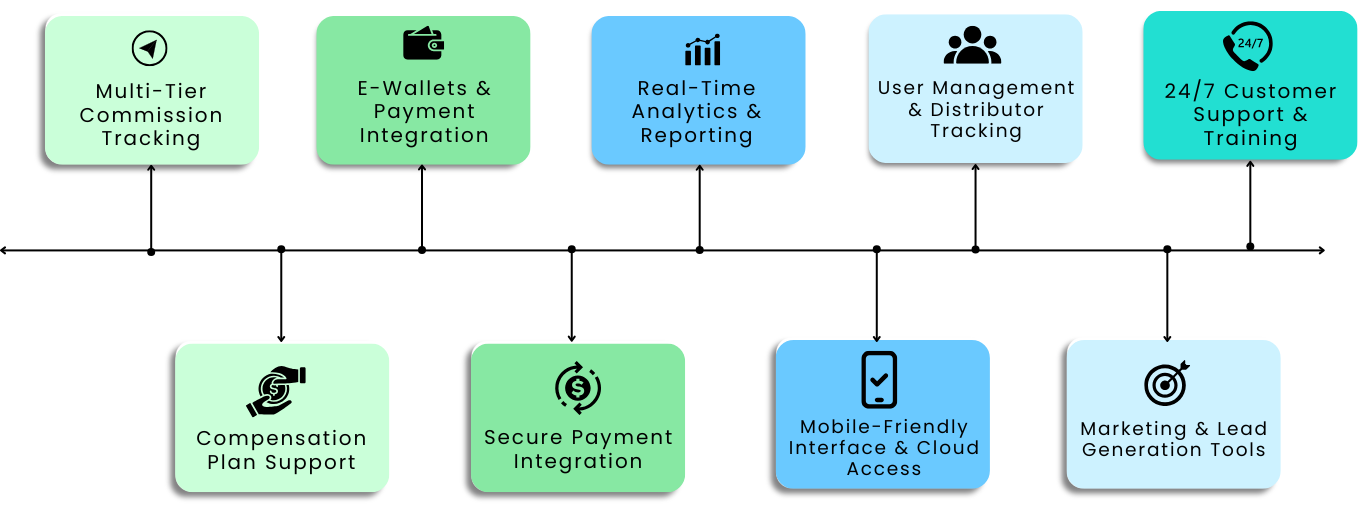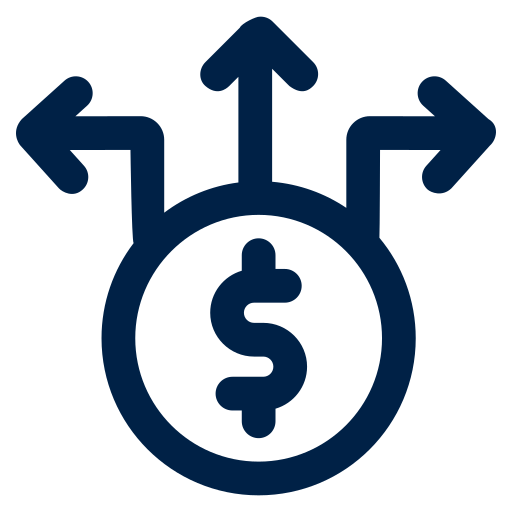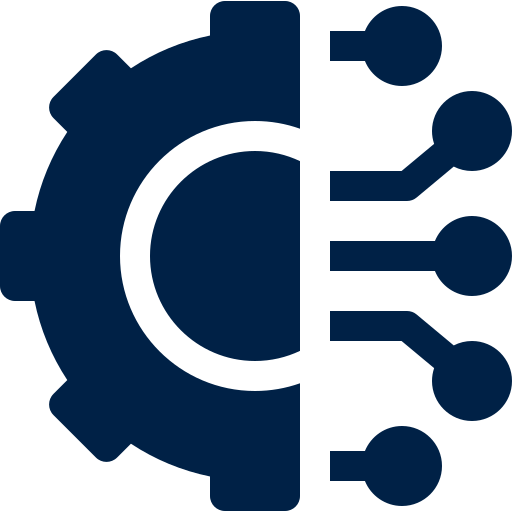The MLM software market was valued at USD 600 million in 2024 and is expected to reach USD 1,259.12 million by 2031, growing at a CAGR of 9.97% during the forecast period from 2024 to 2031. This growth underscores the demand of the right MLM software.
A high-quality, custom-made MLM software solution is essential for businesses to stand out in a competitive market. However, achieving this level of customization and functionality is not possible without partnering with a skilled and experienced MLM software development company.
In this blog, we will explore in detail what MLM software is, the different stages of the software development process, and key factors to consider when selecting a software development company. Additionally, we’ll highlight some of the top MLM software development companies and discuss the major challenges these companies encounter. Let’s get right into it!
What is MLM Software?
MLM software refers to specialized software solutions designed to manage the intricate operations of multi-level marketing businesses. These businesses operate on a network of independent distributors who earn commissions not only for direct sales but also for the sales made by their recruits, creating a multi-level structure.
When choosing MLM software, businesses often have to decide between custom and ready-made solutions. Ready-made MLM software is pre-built and can be implemented quickly at a lower cost, but it may lack the specific features or flexibility needed to cater to unique business requirements.
On the other hand, custom MLM software is made to meet the unique needs of a business, supporting specialized compensation plans, integrating specific payment systems or adding features that are not available in off-the-shelf solutions.
How MLM Software Works
MLM software automates the core operations of a multi-level marketing business by managing user registrations, tracking downlines, calculating commissions and generating reports. It organizes distributors into hierarchical structures, ensuring proper placement within the network and automatically calculates commissions based on the chosen compensation plan, whether binary, matrix or unilevel,.
Key Features of MLM Software
Here are some of the key features of MLM softwares:

Multi-Tier Commission Tracking
This feature allows for automated and precise calculation of commissions across various levels of a network. This system tracks the performance of distributors, affiliates or sales teams within a multi-level network, ensuring that each participant is compensated according to their contribution.
E-Wallets & Payment Integration
This feature enables smooth transactions by integrating with popular payment systems like PayPal, Stripe and even cryptocurrencies. This integration simplifies payment processes, allowing for secure and efficient payments, withdrawals and transfers across multiple platforms.
Real-Time Analytics & Reporting
This feature offers up-to-the-minute insights into sales performance, commission payouts and overall business metrics, helping businesses make informed decisions, optimizing strategies and improving profitability with accurate, real-time data.
User Management & Distributor Tracking
This feature includes intuitive genealogy tree visualizations that provide a clear view of your downline structure helping businesses efficiently track distributor performance, monitor network growth and manage relationships within the multi-level marketing system.
Compensation Plan Support
This feature offers flexibility by accommodating various compensation models, including Binary, Matrix, Unilevel and Hybrid structures. This ensures businesses can choose the most suitable model for their network marketing strategy.
Secure Payment Integration
This feature offers multiple payment gateways, including traditional methods and digital wallets, ensuring secure and flexible transactions. This feature allows businesses to provide customers with a variety of trusted payment options, safeguarding financial data.
Mobile-Friendly Interface & Cloud Access
This feature ensures that the platform is fully optimized for mobile devices, allowing users to access it anytime, anywhere. Hosted on the cloud, this feature provides scalability, secure data storage and easy accessibility from multiple devices.
Marketing & Lead Generation Tools
This includes powerful features such as email campaigns, social media integration and customizable landing pages to capture and nurture leads. These tools help businesses effectively target potential customers and increase engagement.
24/7 Customer Support & Training
This feature provides continuous assistance to users, ensuring they have access to help whenever needed. In addition, training materials are available to guide users through the platform’s features, ensuring an efficient experience for both new and experienced users.
How to Develop MLM Software
Planning & Requirement Gathering
Identify the goals and unique aspects of the MLM business. Analyze the users who will interact with the system—distributors, customers, and admins—and understand their needs and expectations. Based on the business goals, decide on the essential features.
UI/UX Design
The focus is on creating an intuitive and engaging user interface (UI) that provides a smooth user experience (UX). The software must be accessible across multiple devices, so the frontend should be responsive, ensuring that it functions optimally on desktops, tablets and smartphones.
Frontend Development
Frontend Development involves translating the design into code using technologies such as HTML, CSS, JavaScript and frontend frameworks. The frontend interacts with the backend through APIs to display dynamic content such as commissions, downlines and reports.
Database Structuring
A well-structured database is essential for storing user data, transactions, commissions, downline structures, product inventory and financial records. Common databases include MySQL, PostgreSQL, or NoSQL options like MongoDB.
Backend Development
This involves coding the server-side logic, APIs and business rules that power the MLM software. Backend frameworks like Laravel (PHP), Django (Python) or Express (Node.js) are commonly used.
Data Security
The software must include secure login features (e.g., two-factor authentication), data encryption (SSL/TLS) and secure payment integrations to prevent unauthorized access, fraud and data breaches.
Compliance Implementation
MLM businesses need to adhere to legal regulations, including anti-pyramid scheme laws. Compliance with regional laws (GDPR for data privacy, tax regulations, etc.) is also necessary.
Testing
Conduct unit tests to check individual modules and integration tests to ensure that different components of the system work well together. Based on testing feedback, fix any bugs, glitches or performance issues, ensuring the software is stable and efficient.
Deployment
After thorough testing, the MLM software is deployed on a production server, making it live for use. A cloud-based or dedicated server is typically chosen to handle scalability and security concerns. Ensure that proper hosting and backup protocols are in place.
Factors to Consider When Choosing an MLM Software Development Company
Selecting the right MLM software development company is crucial for the success of your business. By focusing on scalability, security, customization and ongoing support, you ensure that the software can grow with your business and meet your specific needs.
Take the time to evaluate potential partners based on their experience, technology stack and the value they provide to choose a reliable company that will deliver the perfect MLM solution. Here are key factors to consider:

Scalability & Future Growth
Choose a development company that designs software capable of scaling as your MLM business expands. The software should be able to handle an increasing number of users, transactions and data without compromising performance. It should also support future upgrades and customization to accommodate new business needs, compensation plans or market expansion.

Security & Data Protection
Ensure that the development company follows best practices in securing data, such as encryption, secure payment gateways and user authentication protocols. Look for companies that prioritize data protection and can help ensure compliance with relevant security standards (e.g., GDPR, PCI DSS).

Support for Multiple Payment Gateways
The MLM software should integrate with multiple payment gateways to support transactions across various regions and business models. Ensure the software company can integrate payment systems that meet your business’s needs, both for paying commissions and processing product payments.

User-Friendly Interface & Mobile Compatibility
The MLM software must have an intuitive and user-friendly interface that makes it easy for both administrators and distributors to navigate. It should also be mobile-friendly, allowing users to access their dashboards, track commissions and manage their business from anywhere.

Technology Stack & Integration Capabilities
Ensure the company uses modern technologies and frameworks that ensure the software is efficient, secure and scalable. They should be able to integrate the MLM software with other systems you may already use, such as CRM tools, email marketing platforms, accounting software, etc.

Customer Support & Software Maintenance
Choose a company that offers reliable customer support and ongoing software maintenance. MLM software is complex, and issues may arise from time to time. Ensure that the development company provides 24/7 support, troubleshooting and regular updates to keep the system running smoothly.

Experience & Expertise
Look for a company with a proven track record of developing MLM solutions and working with businesses in your industry. Their understanding of MLM-specific challenges, such as commission calculations, downline management and legal compliance is essential for a successful solution.

Cost & Value for Money
Avoid opting for the cheapest solution if it compromises on quality or scalability. Consider the long-term value of the software, factoring in customization options, ongoing support, and future updates, rather than just the upfront cost.

Reviews & Testimonials
Check for reviews, testimonials, and case studies from previous clients to assess the reputation and reliability of the MLM software provider. Look for feedback on the company’s ability to meet deadlines, the quality of their software and their customer support.
Best MLM Software Development Companies
1. Secure MLM

With over a decade of experience, Secure MLM has established itself as a leader among MLM software development companies. Its fully customizable platform supports various compensation plans, including Binary, Matrix, and Unilevel, and boasts features like multi-currency support, data based reporting, secure e-wallet management and a user-friendly genealogy tree. Secure MLM’s commitment to innovation and client success makes them a premier partner for businesses looking to grow their MLM operations.
Secure MLM Key Features:
- E-pin
- E-wallet
- Genealogy Tree
- Multi-currency and Multi-language Support
- Support System
- Multiple Payment Options
- SMS Integrations
- Rank Calculation
- Track Activity
- Reports and Analytics
- Payment Gateway Integration
- Multiple Commission Modules
- Configurable Compensation Module
- Lead Capture Pages
- User Roles (Employee/Admin)
- E-commerce Integration
Integrations:
- E-Commerce Add-on
- Replicating Website
- Mobile Apps
- LMS Add-on
- Crypto MLM Software
- SMS Integrator
- Automatic Payment
- E-wallet
Pricing: Customizable pricing available upon request
2. Infinite MLM

Infinite MLM is a leading MLM software development company that provides flexible solutions custom made to the diverse needs of multi-level marketing organizations. Their platform simplifies downline management, ensures accurate compensation calculations and facilitates secure payment processing. Featuring a user-friendly interface, Infinite MLM simplifies navigation for users of all experience levels, solidifying its position as a top-tier provider in the MLM software industry.
Key Features:
- Highly Customizable Solutions
- User-Friendly Interface
- Advanced Reporting and Analytics
- Multi-Language & Currency
- Multiple Payout
- Automatic Payment Processing
- 24/7 Customer Support
- Automated Commission Calculations
- CMS Technologies
- Franchise Management
- Auto Responder
Integrations:
- Payment Gateways
- SMS Integrations
- CRM Systems
- E-commerce Platforms
- Social Media Integration
Pricing: Basic Price: $799
Pricing will vary based on the level of customization, any included add-ons, and the specific features selected.
3. Ventaforce MLM

Ventaforce offers a complete solution with a wide range of features, including inventory management, e-wallets, registrations, purchases, report generation and compensation plans. It is considered an essential tool for gaining a competitive advantage in the MLM industry, providing businesses with the tools to improve business operations and increase profitability. As a result Ventaforce has earned its reputation as one of the top MLM software development companies.
Key Features:
- Multi-Currency
- Multi-Language
- Multi-Vendor
- Replicated Website
- Tax Management
- Responsive Software & Website
- Commission Management
- Multiple Payment Mode Acceptance
- E-wallet
- Various Email & SMS Notifications
- Payment Gateways
- CMS Based Website
Integrations:
- WhatsApp Integration
- E-commerce Integration
- MLM Mobile Application
- E-wallet Integration
- Payment Gateway Integration
Pricing: Starting From – $2499
Common Challenges in MLM Software Development
MLM software development presents several unique challenges. As businesses scale, the need for secure and efficient software becomes even more critical. Developers must navigate a variety of technical, regulatory and operational hurdles to build solutions that can support the dynamic nature of MLM businesses. Below are some of the key challenges faced in MLM software development:
-
Regulatory Compliance
One of the most critical challenges in MLM software development is ensuring that the software complies with legal frameworks and industry regulations. Developers must ensure that compensation plans, user interactions and overall business structures comply with these regulations to avoid legal issues and allegations of running a pyramid scheme.
-
Security Risks
Given the nature of MLM businesses, where sensitive user data, financial transactions and commission tracking are involved, ensuring the security of the platform is paramount. Developers must implement strong security measures to protect user information, such as personal details, financial data and transaction history from data breaches or fraud.
-
Handling Large-Scale Databases & Payout Systems
As MLM businesses expand and accumulate large user bases, managing vast amounts of data and processing complex payouts becomes increasingly complex. Developers must ensure the database is well-structured, and capable of handling the increased load without compromising performance.

